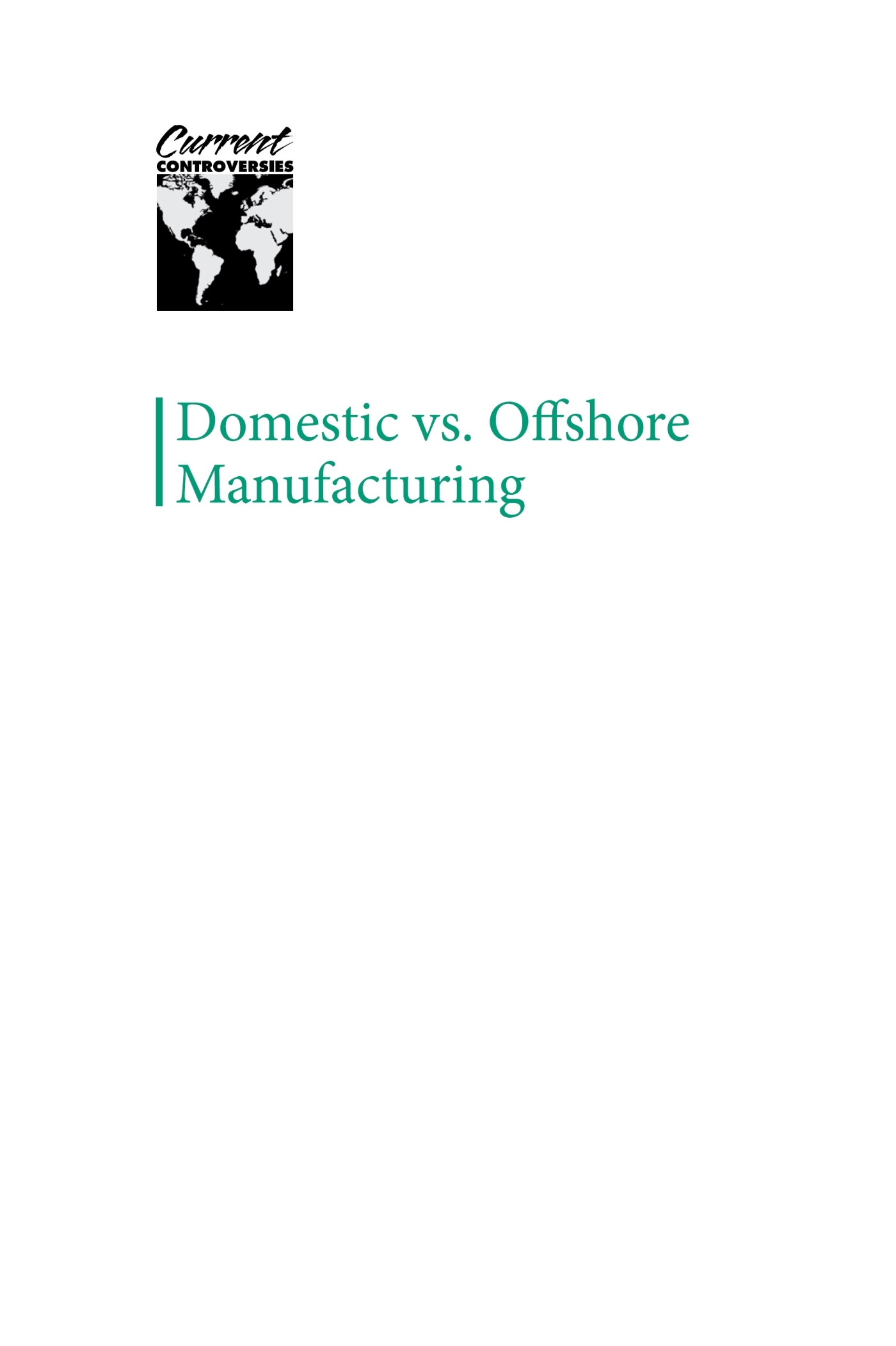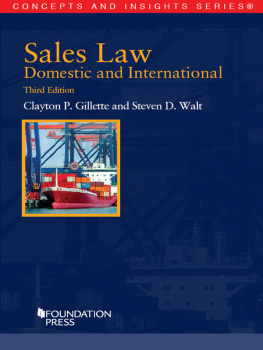

Other Books in the Current Controversies Series
Agriculture
The Dark Web
Environmental Catastrophe
Fair Trade
Freedom of the Press
The Gig Economy
Holocaust Deniers and Conspiracy Theorists
Immigration, Asylum, and Sanctuary Cities
Medical Use of Illicit Drugs
Nativism, Nationalism, and Patriotism
Published in 2022 by Greenhaven Publishing, LLC
353 3rd Avenue, Suite 255, New York, NY 10010
Copyright 2022 by Greenhaven Publishing, LLC
First Edition
All rights reserved. No part of this book may be reproduced in any form without permission in writing from the publisher, except by a reviewer.
Articles in Greenhaven Publishing anthologies are often edited for length to meet page requirements. In addition, original titles of these works are changed to clearly present the main thesis and to explicitly indicate the authors opinion. Every effort is made to ensure that Greenhaven Publishing accurately reflects the original intent of the authors. Every effort has been made to trace the owners of the copyrighted material.
Cover image: anucha sirivisansuwan/Getty Images
Library of Congress Cataloging-in-Publication Data
Names: Cherenfant, Sabine, editor.
Title: Domestic vs. offshore manufacturing / Sabine Cherenfant, book editor.
Other titles: Domestic versus offshore manufacturing
Description: First edition. | New York: Greenhaven Publishing, 2022. | Series: Current controversies | Includes bibliographical references and index. | Audience: Grades 912.
Identifiers: LCCN 2020004608 | ISBN 9781534507128 (library binding) | ISBN 9781534507111 (paperback) | ISBN 9781534507135 (ebook)
Subjects: LCSH: Offshore assembly industryJuvenile literature. | Manufacturing industriesJuvenile literature.
Classification: LCC HD9720.5 .D66 2022 | DDC 338.4/767042dc23
LC record available at https://lccn.loc.gov/2020004608
Manufactured in the United States of America
Website: http://greenhavenpublishing.com
Contents
Kimberly Amadeo
Though outsourcing does impact the domestic job market, the case for manufacturing abroad vs. domestically proves to be a complex debate. Companies that outsource are faced with the need to compete globally and cut costs, but there is also the colossal need to support the domestic labor market.
Yes: Offshoring Helps Companies Stay Afloat
Diversify OSS
There are five important reasons why companies turn to offshore manufacturing: lower cost, restrictive domestic regulations, the need to compete, higher quality goods, and domestic skill shortage. Offshoring helps companies tackle those issues and allows them to stay competitive in the domestic and global markets.
Nathan Resnick
By offshoring production to China, companies are not only significantly cutting costs, but they are also widening their market reach and expanding their production capacity. Counterfeit products are indeed an issue, but working with sourcing platforms helps prevent this.
Theo Anderson
Alone, the low cost of labor overseas is not enough of a reason for a company to outsource productionthe price of transportation and other hidden costs are important factors as well. This viewpoint explains a model developed by Jan Van Mieghem and Robert Boute to help companies determine if domestic manufacturing would cost them less than offshore manufacturing. For many companies, offshoring proves to be vital for survival.
No: Offshoring Costs Companies More in the Long Run and Affects Domestic Wages
Adam Hersh and Ethan Gurwitz
Globalization puts a lot of pressure on local job markets because production tends to be moved to foreign countries with lower labor costs. This means that offshoring plays a significant role in driving domestic wages downward.
Global Manufacturing Services, Inc.
Before moving production abroad, companies must take into consideration the hidden costs associated with offshoring. Even though offshore manufacturing helps companies keep labor costs down, hidden expenses make up an additional 27 percent in costs accrued.
Robert Handfield
Product recalls are not often addressed in discussions about offshore manufacturing. Nevertheless, in addition to product delays and distribution issues, quality defects are a relatively common problem that results in recalls and additional costs to businesses.
Rice University
When offshoring, companies need to first understand the local culture of the community with which they intend to work. Moreover, as companies globalize and become increasingly interconnected, they will need to heed local ethical considerations as well.
Yes: Offshoring Helps Developing Countries Fight Extreme Poverty and Raise Their GDP
Ana Revenga and Anabel Gonzalez
The globalization of the manufacturing industry has helped to increase household incomes and GDP in developing countries like Vietnam, Honduras, and El Salvador. In reshoring, companies will greatly affect household incomes in these countries.
Prachi Juneja
The skills that workers often perform in factoriesoccasionally called sweatshopscan easily be automated if the cost of labor is too high. These jobs are even more crucial to developing countries than to the multinational companies who depend on sweatshops as part of their supply chain, and so it is in the best interest of laborers to hold on to these jobs.
Marc Gunther
Nonprofit and socially conscious organizations like the Rockefeller Foundation, Telus International, and Digital Divide Data use outsourcing to fight extreme poverty in impoverished countries. Moreover, trade has helped Chinaan economic superpower with a high degree of income inequalitysignificantly cut its extreme poverty rate, reducing it from 84 percent to 10 percent.
No: Offshore Manufacturing Is Unethical and Does Not Benefit Hosting Countries
Jason Hickel
It is wrong to assert that sweatshops benefit poor countries. Most of those countries were self-sustainable, with the population largely depending on the land for economic resources. But with colonization and globalization, local workers had no choice but to leave their land to look for other sources of income.
Rebecca Prentice and Geert De Neve
The problem with sweatshop labor is that it not only puts workers in unsafe conditions, but it also subjects them to long hours of work, exhaustion, and mental and physical health issues. Moreover, the ethical standards that have been established for these factories have largely been ineffective at tackling these problems.
Simon Parry
The need for cheap clothing is pushing wages downward in poor countries. Companies move abroad to satisfy their consumer needs, but consumers will need to switch from buying cheaply to buying responsibly to put an end to the shameful practice of child labor.
Emma Clancy
Apple relocated its non-US sales and intellectual property operations to Ireland but has managed to avoid paying the appropriate taxes to the European Union and Ireland in particular.
Synthesis Engineering Services
Offshore manufacturing does not work for all companies, since moving production abroad is not as simple as it may seem. Foreign manufacturing is especially useful for companies that need large production operations, but if production delivery is time sensitive, it is best to manufacture domestically.
Next page











